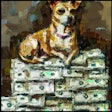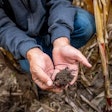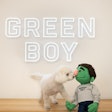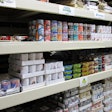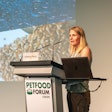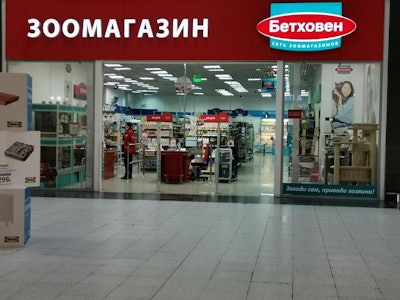
Russia sees the range in some segments of the domestic pet food market dramatically narrowing as Western sanctions have disrupted import supplies. The current crisis is believed to be opening new development prospects for local manufacturers, though unraveling them could be a tricky task.
“We are expecting problems for the Russian pet food market to be pretty severe,” said Kirill Dmitriev, president of the Russian national association of the animal and zoo industry, explaining that imports already hampered by Russia’s veterinary restrictions in previous years have been further disrupted due to logistics chaos. “We are probably heading into a disastrous shortage of some products.”
Russian pet owners stocking up
The Russian market has not yet felt the full impact of the current crisis, since importers keep receiving shipments ordered in February, and there are some leftovers in the warehouses, Dmitriev said.
However, a shortage of some products, like therapeutic diets and holistic pet foods, is already seen, said Tatyana Kolchanova, general director of the Russian zoobusiness association. To a large extent, the lack of pet food is associated with panic buying.
“Shortly after the beginning of the Russian special military operation, we saw a feverish demand. Customers were stocking pet food for a year in advance,” Kolchanova said, adding that not only customers but also some businesses stepped in to purchase large product quantities, in order to re-sell them later at higher prices.
Given the mounting sanctions pressure and the growing list of companies that opted to pull out of the Russian market, some businesses anticipate imports to dwindle.
“Even if part of products manufactured by foreign brand owners stays on the shelves, their quantities may substantially decrease,” said Tauras-Fenix, a packaging equipment company, in a press statement published on April 27. The price of pet food supplied by the companies that continue operation in Russia, including Aller Petfood Group, Monge, Farmina and Grandorf, will double due to the current crisis, Tauras-Fenix added, citing market analysts.
So far, the price hike in the Russian pet food market has not been dramatic, limited to 20%-30% or higher in some particular product categories, Dmitriev said.
Though pet food has not been subjected to any economic sanctions, imports have been in turmoil since the beginning of the current crisis. Nowadays, Russian importers work on establishing new supply schemes via the territories of Turkey and Kazakhstan, but this is not likely to bring fast results, Kolchanova explained.
Pet retail is under fire
The Russian pet food market has been steadily growing during the past few years. In 2021, sales totaled US$4.05 billion, compared with US$3 billion in 2016, Statista estimated. This figure was projected to jump to US$5.2 billion by 2025. However, growth prospects currently seem vague, according to market participants.
For instance, the current crisis promises to cut the number of specialty pet food stores in the country. This trend already affects not only independent stores but also specialty pet food chains.
“For the time being, we are carrying out fairly targeted closures. We close those stores that have not been performing very well for a time. Plus those where the rent costs are very high: This is another sore point that has to be addressed,” said Georgy Chkareuly, general director of the pet products chain Beethoven, admitting that the company would have to sacrifice even good locations when landlords refuse to decrease rental fees.
The import disruptions proved to be a big blow for specialty pet food retailers who used to successfully compete among themselves thanks to a diversified product range, Dmitriev said.
“We might have a situation where three independent pet food stores were located within one residential building,” he said, explaining that range diversity allowed independent stores to have their own loyal customers. But in the new reality, there are strong fears about how many stores would weather the storm. “After all, they could not switch to the most widespread brands, those available in supermarkets, since this doesn’t make economic sense.”
At this point, it is difficult to forecast how pet retail will be affected, given the high uncertainty and that things are rapidly changing, he added.
A chance for Russian pet food businesses
By replacing imports, Russian pet food manufacturers could ramp up production by nearly 170,000 tons, according to Tauras-Fenix. In addition to replacing imports on the domestic market, Russian companies could also establish some export supplies, the company added.
“We already have a pool of domestic companies who started replacing imports," said Kolchanova. “Rosselhoznadzor [a Russian governmental agency] estimated there are 190 pet food companies in Russia. We counted 130, but it is still a lot.”
The problem with import replacement, however, is that most pet food components, including meat meal, bone meal and vitamins, are also imported, Dmitriev said. Besides, Russian pet food companies have no available production capacities to quickly ramp up production, while building new factories from scratch is challenging given the high interest rate on loans in Russia, he added.
“In addition, if we talk about therapeutic pet food, Russian pet food companies need to develop formulations and conduct field trials first. Normally, those take at least six months,” he added. “We urgently need to change our approach to pet food industry development,” explaining that agricultural producers in Russia are eligible for state aid in the form of subsidies, soft loans and reimbursement of capital costs under new projects. “On the other hand, pet food manufacturers get nothing. Given the current condition, this needs to be changed,” Dmitriev said.
To have a chance to replace imports, Russian pet food manufacturers need a new government program involving sophisticated state support schemes, he concluded.





